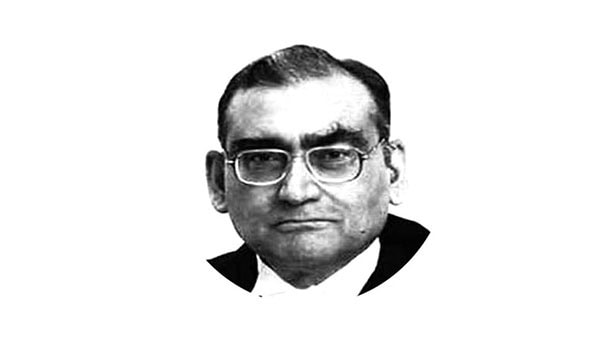Revisiting Obergefell vs Hodges
ROE vs Wade is likely to be overturned by the US Supreme Court, as the leaked draft opinion of Justice Alito indicates, and I have in my article published in indicanews.com said that I agree with Justice Alito.https://indicanews.com/2022/05/09/revisiting-roe-vs-wade/ For the reason given in my article (that it is for the legislature, not the judiciary, to make law) the US Supreme Court’s decision in Obergefell vs Hodges, 2015 should also be reversed.
By a 5-4 majority the Obergefell decision directed all states in US to licence gay marriages. In USA some states had recognised such marriages, but others had not.
But by this decision even states which had not recognised such marriages were directed to recognise and licence them, even those gay marriages performed outside the state..
This was surely assumption of a legislative role by the judiciary. How can the Court direct that a law made in some states will be applicable in all?
As observed by Chief Justice Roberts in his dissenting judgment: “This Court is not a legislature. Whether same-sex marriage is a good idea should be of no concern to us.
Under the Constitution, judges have power to say what the law is, not what it should be. ” Marriage was traditionally understood as a union between a man and a woman.
If this definition is to change that should be done only by the legislature, not the judiciary.
Justice Scalia in his dissenting judgment has called the majority verdict a ‘ judicial putsch ‘, and that is exactly what it is, a decision by five unelected judges imposed on the 320 million people of America.
The majority view relied on the due process clause in the Fourteenth Amendment to the Constitution. But I fail to see what that clause has to do with gay marriages.
That clause only says that no one shall be deprived of his life, liberty or property except by due process of law.
What has this to do with gay marriages? As observed by Justice Alito “Today’s decision shows that decades of attempts to restrain this Court’s abuse of its authority have failed.
A lesson that some will take from today’s decision is that preaching about the proper method of interpreting the Constitution or the virtues of judicial self-restraint and humility cannot compete with the temptation to achieve what is viewed as a noble end by any practicable means.
What it evidences is the deep and perhaps irremediable corruption of our legal culture’s conception of constitutional interpretation “.
In the name of judicial activism judges cannot cross their limits and take over the function of another organ of the state. They must have modesty and humility, and not behave like Emperors.
There is broad separation of powers between the three organs of the state, the legislature, executive and judiciary, and each organ must avoid trespassing into each others domains, otherwise the delicate balance in the Constitution will be upset, and there will be a reaction.
Justice Frankfurter of the U.S. Supreme Court in Trop v Dulles (1958) observed: “All power, in Madison’s phrase, is of an encroaching nature. Judicial power is not immune against this human weakness.
It also must be on guard against encroaching beyond its proper bounds, and not the less so since the only restraint upon it is self restraint.
Rigorous observance of the difference between limits of power and wise exercise of power between questions of authority and questions of prudence requires the most alert appreciation of this decisive but subtle relationship of two concepts that too easily coalesce. No less does it require a disciplined will to adhere to the difference.
It is not easy to stand aloof and allow want of wisdom to prevail to disregard one’s own strongly held view of what is wise in the conduct of affairs. But it is not the business of this Court to pronounce policy.
It must observe a fastidious regard for limitations on its own power, and this precludes the Court is giving effect to its own notions of what is wise or politic. That self-restraint is of the essence in the observance of the judicial oath”. In Lochner vs.
New York 198 US 45(1905) Justice Holmes of the US Supreme Court in his dissenting judgment criticized the majority of the Court for becoming a super legislature by inventing a ‘liberty of contract theory, thereby enforcing its particular laissez faire economic philosophy.
Similarly, in his dissenting judgment in Griswold vs Connecticut 381 US 479, Justice Hugo Black warned that unbounded judicial creativity would make this Court a day-to-day Constitutional Convention.
In ‘The Nature of the Judicial Process Justice Cardozo remarked: The Judge is not a Knight errant, roaming at will in pursuit of his own ideal of beauty and goodness.
Justice Frankfurter has pointed out that great judges have constantly admonished their brethren of the need for discipline in observing their limitations (see Frankfurter’s Some Reflections on the Reading of Statutes). It is time Obergefell is reversed.
—The writer is former judge, Supreme Court of India.










